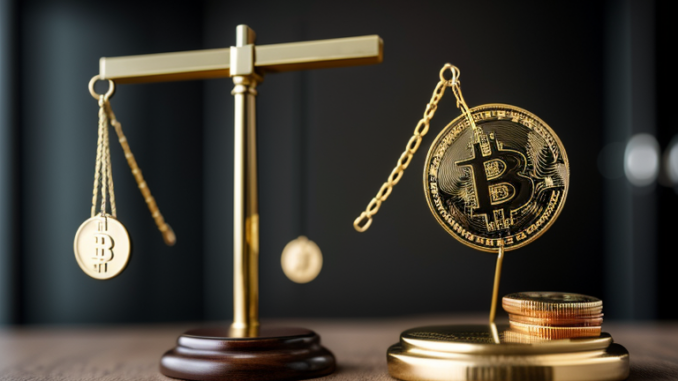
Gary Gensler, the head of the U.S. Securities and Exchange Commission (SEC), is on a mission to rein in the growing cryptocurrency industry. He wants to stop fraud, protect investors, and deal with the challenges of digital assets. But his actions have caused both praise from skeptics and backlash from supporters, making the struggle for control of the crypto industry more intense.
Protecting Investors and Fighting Fraud:
Since taking office in 2021, Gensler has been committed to protecting investors and dealing with fraud in the cryptocurrency space. Under his leadership, the SEC has sued big companies like FTX, Binance, and Ripple for breaking securities laws and committing fraud. These lawsuits aim to make the industry more accountable and transparent, as it is plagued by scams and illegal behavior.
Concerns About Stablecoins:
One of Gensler’s main worries is stablecoins, which are digital currencies tied to traditional assets like regular money. He is concerned about how they could affect the financial system and has even called them “poker chips.” Gensler thinks stablecoins could cause problems in the market and enable illegal activities, which could be risky for the whole system.
Persistence Despite Setbacks:
Even though he has faced legal setbacks, Gensler is determined to gain regulatory control. The recent overturning of the SEC’s decision to block Grayscale Investments’ proposed Bitcoin exchange-traded fund (ETF) by an appeals court is seen as a big win. This ruling might allow products that were previously considered unsuitable for regular investors to be released, further solidifying Gensler’s regulatory power over the crypto industry.
Scrutiny and Criticism:
Gensler’s changing views on cryptocurrencies have been closely examined. Before joining the SEC, he was positive about the potential of blockchain technology to bring positive change and promote economic inclusion. However, his involvement in the collapse of the FTX cryptocurrency exchange has raised doubts about his ability to effectively regulate the industry.
Addressing Mixing and Trading Practices:
Gensler is concerned about the mixing and trading practices on cryptocurrency platforms, as they raise fraud concerns. The SEC believes that some platforms are not following securities laws, leaving investors vulnerable to manipulation and exploitation. Gensler’s regulatory proposals aim to tackle these issues and protect the market’s integrity.
Balancing Innovation and Regulation:
Critics argue that Gensler’s actions hinder innovation and growth in the cryptocurrency industry. They fear that too much regulation could limit market access and slow down the development of new technologies. However, supporters see his efforts as necessary to create a safer and more transparent ecosystem for digital assets.
The Future of Crypto Regulation:
Gensler’s battle for regulation takes place in an industry that is quickly evolving and becoming part of mainstream finance. As cryptocurrencies become more accepted, the role of regulators like the SEC becomes increasingly important. Finding the right balance between protecting investors and promoting innovation is a delicate task that will shape the future of digital assets.
Conclusion:
Gary Gensler’s time as SEC chairman has been marked by a strong approach to regulating the cryptocurrency industry. Through lawsuits and regulatory initiatives, he aims to fight fraud, protect investors, and reduce risks. While his actions have received both praise and criticism, the fight for control of the crypto industry continues, with significant implications for the future of finance.

Be the first to comment